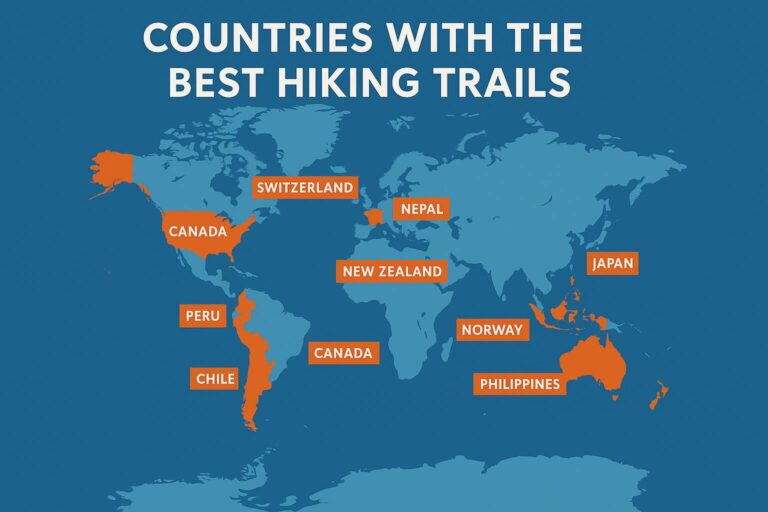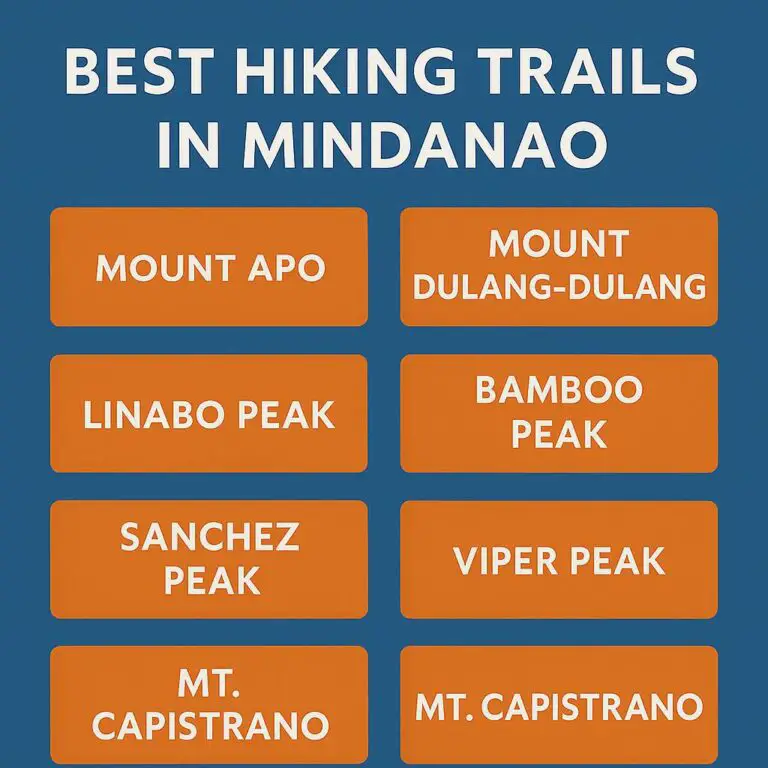Welcome to my hiking nutrition guide! If you’re an avid hiker like me, you know that fueling your body properly can make a world of difference in your outdoor adventures. Whether you’re conquering challenging trails or exploring scenic landscapes, the food you eat before, during, and after a hike plays a vital role in your performance and recovery.
In this guide, I’ll delve into the world of hiking nutrition, covering everything from what to eat the night before a hike to what snacks to pack for sustained energy on the trail. So, grab your hiking boots, and let’s dive in!
Preparing for the Hike: The Night Before
The night before a hike—an exciting time filled with anticipation for the adventure that lies ahead. But before you lace up your hiking boots, it’s essential to prepare your body with a nourishing meal the night before. Here’s what you should focus on when planning your pre-hike dinner:
- Lean Proteins: Incorporate lean proteins into your meal to provide your body with the building blocks it needs for sustained energy. Opt for grilled chicken, turkey, fish, or tofu. These options are packed with essential amino acids that aid in muscle repair and recovery.
- Complex Carbohydrates: Choose complex carbohydrates that release energy slowly, giving you a steady supply of fuel throughout your hike. Whole grains like quinoa, brown rice, or whole wheat pasta are excellent choices. They provide fiber, vitamins, and minerals to support your overall health and endurance.
- Nutrient-Rich Vegetables: Don’t forget to load up on vegetables! They are packed with vitamins, minerals, and antioxidants that support your immune system and help your body function optimally. Roasted or steamed vegetables like broccoli, carrots, and bell peppers make tasty and nutritious additions to your pre-hike meal.
Remember to stay hydrated and avoid excessive alcohol or caffeine consumption, as they can dehydrate you and affect your sleep quality.
Fueling Strategies: What Not to Eat Before a Hike
While I’ve discussed what to eat before a hike, it’s equally important to know what foods to avoid. Certain choices can leave you feeling sluggish, uncomfortable, or lacking energy during your hike. To ensure a smooth and enjoyable experience, here’s a list of foods to steer clear of before hitting the trails:
- Heavy and Greasy Foods: Avoid consuming heavy or greasy meals before your hike. These can sit heavily in your stomach, leading to discomfort, indigestion, and even nausea while you’re on the trail. Skip deep-fried foods, rich sauces, and heavy meats to prevent any unwanted digestive issues.
- Spicy Foods: While some people enjoy the kick of spicy foods, they may not be your best choice before a hike. Spicy foods can cause heartburn, upset stomach, and even increase the risk of acid reflux during physical activity. It’s best to save those fiery meals for another time and opt for milder flavors before your hike.
- Processed and Sugary Foods: Stay away from highly processed and sugary foods before your hike. These include candies, sodas, sugary cereals, and overly processed snacks. They may provide a quick burst of energy but can lead to a subsequent energy crash, leaving you feeling fatigued and drained on the trail.
- Excessive Fiber: While fiber is essential for a healthy diet, consuming excessive amounts before a hike can lead to digestive discomfort and potentially unwanted bathroom breaks along the trail. Limit your intake of high-fiber foods like beans, lentils, bran, and certain cruciferous vegetables.
- New or Unfamiliar Foods: It’s not the best time to experiment with new or unfamiliar foods before a hike. Stick to foods that you know your body tolerates well. Introducing new ingredients can potentially cause digestive issues or allergies, disrupting your hiking experience.
Every individual’s body is unique, so it’s essential to listen to your own needs and preferences. Pay attention to how different foods make you feel, and adjust your pre-hike meals accordingly. Now, let’s move on to the next important aspect of hiking nutrition—what to eat during a hike.
On-the-Go Nutrition: What to Eat During a Hike
When you’re out on the trail, it’s crucial to fuel your body with snacks that provide sustained energy and keep you hydrated. On-the-go nutrition plays a vital role in maintaining your stamina and keeping you fueled throughout your hike. Here are 5 ideas for what to eat during a hike.
- Trail Mix: A classic choice for hikers, trail mix is a portable and nutrient-dense snack. Create your own mix by combining a variety of nuts, seeds, dried fruits, and even a sprinkle of dark chocolate for a touch of sweetness. The mix provides a balance of healthy fats, carbohydrates, and protein to keep you energized.
- Energy Bars: Look for energy bars that are made with wholesome ingredients and provide a good balance of carbohydrates, protein, and healthy fats. Choose bars that are low in added sugars and contain natural ingredients like nuts, seeds, whole grains, and dried fruits. They are convenient, lightweight, and offer a quick energy boost on the trail.
- Fresh Fruits: Pack lightweight and easily portable fresh fruits such as apples, oranges, or grapes. These fruits provide natural sugars for a quick energy source, along with hydration and essential vitamins. They are refreshing, delicious, and a great way to stay nourished during your hike.
- Nut Butter Packets: Single-serve packets of nut butter, such as almond or peanut butter, are fantastic for on-the-go fueling. They are packed with healthy fats and protein, which provide sustained energy. You can enjoy them on their own or spread them on whole-grain crackers or fruit slices for a satisfying snack.
- Hydration: Don’t forget to stay hydrated! Along with solid snacks, be sure to carry a water bottle or a hydration pack to replenish fluids throughout your hike. Consider electrolyte-rich beverages like coconut water or sports drinks to replace lost electrolytes, especially during longer and more strenuous hikes.
Remember, the key is to choose lightweight, non-perishable, and nutrient-dense snacks that won’t weigh you down or spoil easily. Experiment with different combinations to find what works best for your taste buds and energy needs.
Pay attention to your body’s signals and snack at regular intervals to maintain energy levels and prevent hunger or fatigue.
Rise and Shine: Breakfast Before a Hike
A hearty and nourishing breakfast is the perfect way to kickstart your day before hitting the trails. Breakfast provides the fuel your body needs to sustain energy levels throughout your hike. Here are 5 great ideas for a satisfying breakfast before a hike:
- Oatmeal with Toppings: Start your morning with a warm bowl of oatmeal, a classic and energy-packed breakfast option. Opt for steel-cut or rolled oats for a wholesome choice. Top it off with a variety of toppings like fresh berries, sliced bananas, nuts, and a drizzle of honey or maple syrup. This combination provides complex carbohydrates, fiber, and antioxidants to keep you energized and satisfied.
- Whole-Grain Toast with Protein: Toast is a quick and easy breakfast option. Choose whole-grain bread, which offers more fiber and nutrients than refined white bread. Top it with protein-rich options like nut butter, avocado slices, or a poached egg. These combinations provide a good balance of carbohydrates, healthy fats, and protein to fuel your hike.
- Greek Yogurt Parfait: Indulge in a delicious and protein-packed Greek yogurt parfait. Layer Greek yogurt with fresh fruits, granola, and a sprinkle of nuts or seeds. Greek yogurt is rich in protein, calcium, and probiotics, providing a satisfying and nutritious breakfast option.
- Smoothies: If you prefer a lighter breakfast or have an early start, a nutritious smoothie can be a great choice. Blend together a combination of fruits, leafy greens, a source of protein like Greek yogurt or protein powder, and a liquid such as almond milk or coconut water. Smoothies are refreshing, hydrating, and packed with vitamins and minerals to fuel your hike.
- Hydration: Don’t forget to hydrate in the morning! Start your day with a glass of water or a hydrating beverage like herbal tea or freshly squeezed juice. Staying properly hydrated is essential for optimal performance and overall well-being.
Breakfast sets the tone for your hiking adventure, so aim for a balanced meal that includes complex carbohydrates, protein, healthy fats, and hydrating beverages. Customize your breakfast based on your preferences and dietary needs. Listen to your body, and if you have specific dietary restrictions or allergies, make suitable substitutions to ensure you have a fulfilling and enjoyable breakfast before hitting the trails.
Post-Hike Recovery: What to Eat After a Hike
Congratulations on conquering the trails! Now, it’s time to focus on post-hike recovery and nourishing your body after an adventurous day. The right post-hike meal can aid in muscle recovery, replenish nutrients, and promote overall well-being. Here are 6 awesome ideas for what to eat after a hike:
- Lean Protein: After a hike, your muscles need protein for repair and recovery. Opt for lean protein sources such as grilled chicken, turkey, fish, or plant-based options like tofu or legumes. These protein-rich foods provide essential amino acids that aid in rebuilding muscle tissue.
- Whole Grains: Include whole grains in your post-hike meal to replenish glycogen stores and provide sustained energy. Quinoa, brown rice, whole wheat pasta, or whole-grain bread are excellent choices. They offer complex carbohydrates, fiber, and vitamins to support recovery and replenish energy levels.
- Colorful Vegetables: Load up your plate with a variety of colorful vegetables. They are packed with vitamins, minerals, and antioxidants to support your immune system and overall health. Steamed, roasted, or stir-fried vegetables like broccoli, carrots, spinach, or bell peppers make a nutritious addition to your post-hike meal.
- Hydration: Hydration is key to recovery. Replenish fluids by drinking plenty of water after your hike. If you’ve had an intense or prolonged hike, consider electrolyte-rich beverages or coconut water to restore electrolyte balance.
- Balanced Meal: Aim for a well-balanced meal that combines lean protein, whole grains, and vegetables. For example, a grilled salmon fillet with quinoa and steamed vegetables provide a combination of protein, carbohydrates, healthy fats, and essential nutrients for recovery.
- Snack Option: If you’re not quite ready for a full meal, a nutritious snack can still provide essential nutrients. Consider options like a protein smoothie with fruits and Greek yogurt, a handful of nuts and dried fruits, or a protein bar made with natural ingredients.
Post-hike nutrition is crucial for your body’s recovery. Listen to your hunger cues and provide your body with the nourishment it needs. Don’t forget to hydrate and replenish fluids to support your overall well-being.
Conclusion
Congratulations on reaching the end of this hiking nutrition guide. I’ve covered everything from what to eat the night before a hike to on-the-go snacks during your adventure, and finally, the importance of post-hike recovery meals. By following these guidelines, you’ll be well-equipped to fuel your body properly and enhance your hiking experience.
Remember, proper nutrition is the key to optimizing your performance, maintaining energy levels, and promoting efficient recovery. Tailor your meals and snacks to your personal preferences and dietary needs, and don’t forget to listen to your body’s cues.
As you embark on your hiking adventures, experiment with different meal options to find what works best for you. Every hiker is unique, and finding the right balance of nutrients and hydration is a personal journey.
So, pack your backpack with nutritious foods, stay hydrated, and enjoy the beauty of nature as you conquer those breathtaking trails. Whether you’re hiking for a day or embarking on a multi-day adventure, fueling your body with the right foods will help you make the most of every step.
Stay safe, be prepared, and most importantly, have fun on your hiking journeys. Happy trails and happy eating!
Here’s another great article that you should read: Why Eat Salty Snacks When Hiking?








